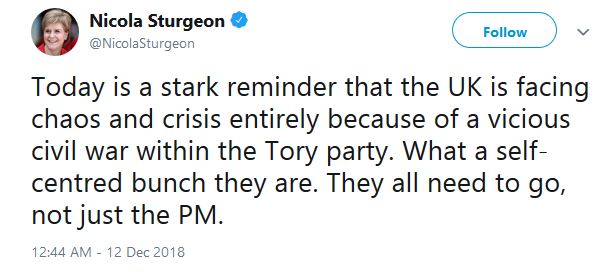World
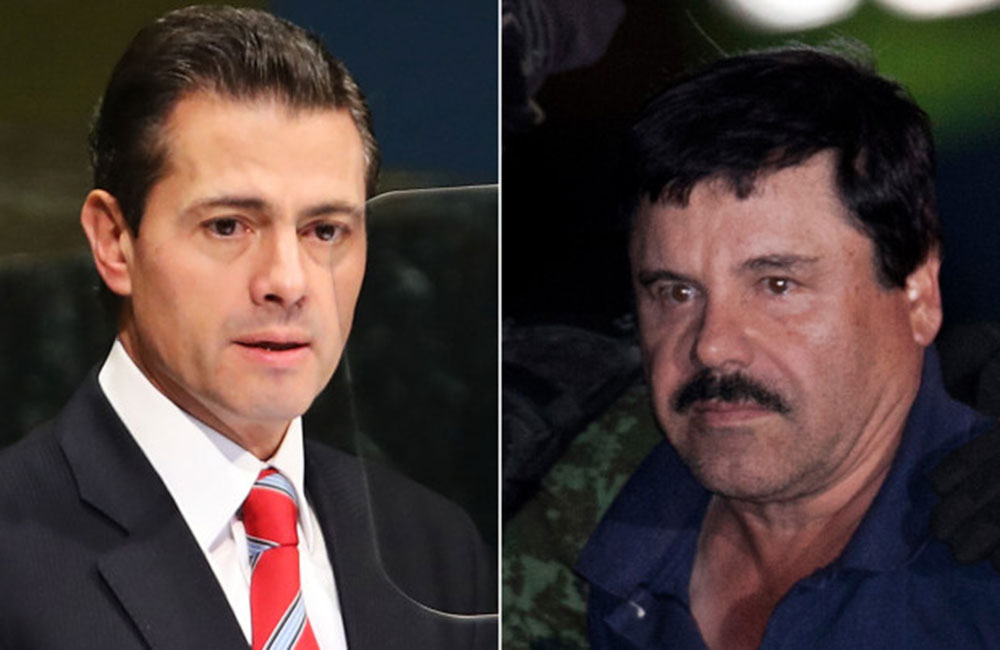
Drug kingpin 'El Chapo' paid $100m bribe to former Mexican president Peña Nieto
Former Mexican President Enrique Peña Nieto accepted a $100m (£77m) bribe from drug cartel kingpin Joaquín "El Chapo" Guzmán, a witness has testified.
Alex Cifuentes, who says he was a close associate of Guzmán for years, told a New York City courtroom that he had told authorities of the bribe in 2016.
Guzmán is accused of being behind the Sinaloa drug cartel, which prosecutors say was the largest US drug supplier.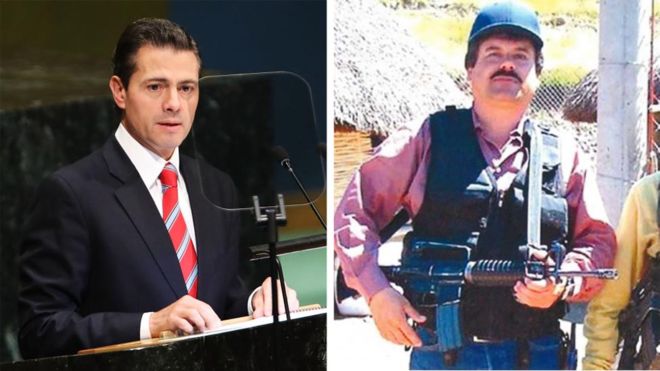 Former Mexican president Enrique Peña Nieto (L) and Joaquín "El Chapo" Guzmán (R)/ Getty
Former Mexican president Enrique Peña Nieto (L) and Joaquín "El Chapo" Guzmán (R)/ Getty
Mr Peña Nieto served as the president of Mexico from 2012 to 2018.
Guzmán, 61, has been on trial in Brooklyn since November after he was extradited from Mexico to face charges of trafficking cocaine, heroin and other drugs as leader of what the US has called the world's largest drug cartel.
"El Chapo" (right) is the highest-ranking alleged drug lord to face trial in the US so far/Reuters
According to reporters in the Brooklyn courthouse, Mr Peña Nieto had requested $250m before settling on $100m.
Cifuentes claimed the delivery was made to Mexico City in October 2012 by a friend of El Chapo.
Cifuentes, a Colombian drug lord who has described himself as El Chapo's "right-hand man", worked as his secretary and spent two years hiding from authorities with him in the Mexican mountains, according to prosecutors.
He was arrested in Mexico in 2013 and was later extradited to the United States where he pleaded guilty to drug trafficking in a deal with prosecutors.
Mr Peña Nieto has not responded to the latest claim, but has previously rejected allegations of corruption that have surfaced during the trial since it began in November.
________________________________________________________________________________________
A high-stakes case
Analysis by Tara McKelvey, BBC News, Brooklyn
The trial in the Federal District Court in Brooklyn is a security circus - with guards everywhere and metal detectors set up in different areas of the building, leading to the courtroom on the eighth floor.
Outside of the building, part of the street is blocked off. The trial itself has offered macabre details about assassinations carried out by drug traffickers and stunning allegations about state officials.
After the a former top lieutenant for El Chapo testified of an alleged bribe to the former Mexican president, reporters rushed out of the courtroom, heading to file their stories.
It's hard to know what to believe when former drug traffickers testify, but one thing is clear: the tight security makes sense in a place where the stakes are so high.
Guzmán's lawyer, Jeffrey Lichtman, has argued that the real leader of the Sinaloa cartel is Ismael "El Mayo" Zambada.
He claims Mr Zambada has survived prosecution by bribing the "entire" Mexican government, including Mr Peña Nieto and former president Felipe Calderón.
President Peña Nieto and Mr Calderón immediately rejected the accusation, with the latter calling it "absolutely false and reckless".
In November another cartel member testified that an aide to current Mexican President Andrés Manuel López Obrador was allegedly paid a bribe in 2005.
Cifuentes testified earlier on Friday that El Chapo had ordered a $10m bribe be paid to a general, but later decided to have him killed instead. The hit was never carried out.
(BBC)
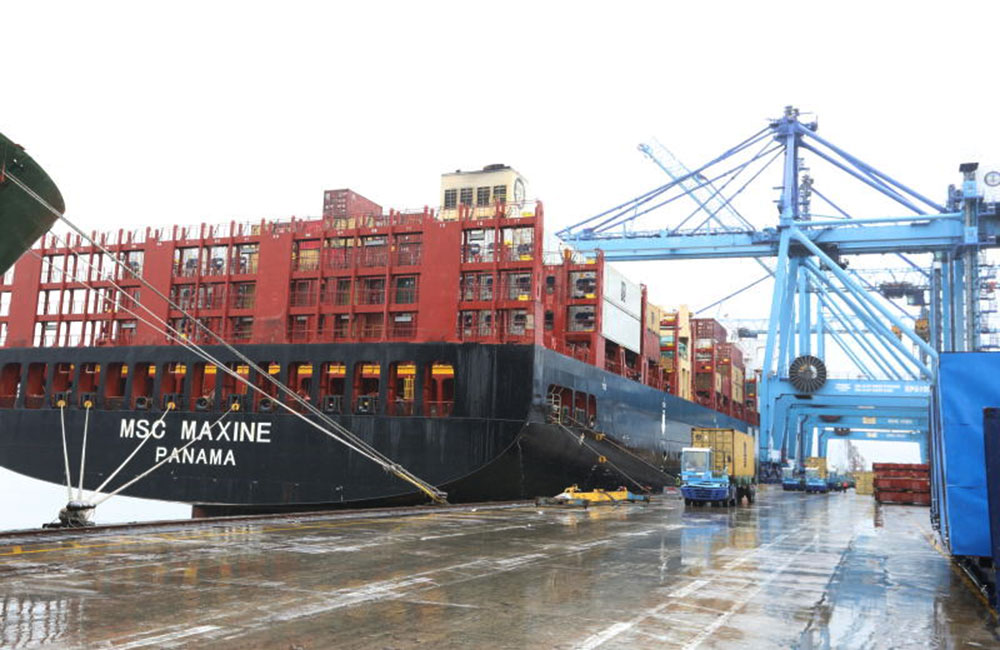
China to take over Kenya’s main port over unpaid huge Chinese Loan
Kenyan government risks losing the lucrative Mombasa port to China should the country fail to repay huge loans advanced by Chinese lenders. In November, African Stand reported on how Kenya is at high risk of Losing strategic assets over huge Chinese debt and just after some few months the Chinese are about to take action.
The loans have been granted for the development of the Standard Gauge Railway (SGR). Also at stake is the Inland Container Depot in Nairobi, which receives and dispatches freight hauled on the new cargo trains from the seaport. Implications of a takeover would be grave, including the thousands of port workers who would be forced to work under the Chinese lenders.
Management changes would immediately follow the port seizure since the Chinese would naturally want to secure their interests. Further, revenues from the port would be directly sent to China for the servicing of an estimated Sh500 billion lent for the construction of the two sections of the SGR.
In September 2018, Zambia lost Kenneth Kaunda International Airport to China over debt repayment. The SGR –operated by the Chinese, is a hugely loss-making venture, meaning it cannot generate enough money to repay loans. SGR reported a near Sh10 billion loss in its first year of operations.
The Auditor General has warned that the eventuality is likely because of a lopsided loan agreement that greatly favours the China Exim Bank, who advanced Kenya the loan.Specifically, Kenya got the short end of the stick in the agreement where any disputes arising from the debt servicing would be arbitrated in China.
An audit completed last month indicates that Kenya Ports Authority’s (KPA) assets, which include the Mombasa port, could be taken over if the SGR does not generate enough cash to pay off the debts.
“The China Exim Bank would become a principal in (over) KPA if Kenya Railways Corporation (KRC) defaults in its obligations and China Exim Bank exercise power over the escrow account security,” the audit reads in part. (African Stand)
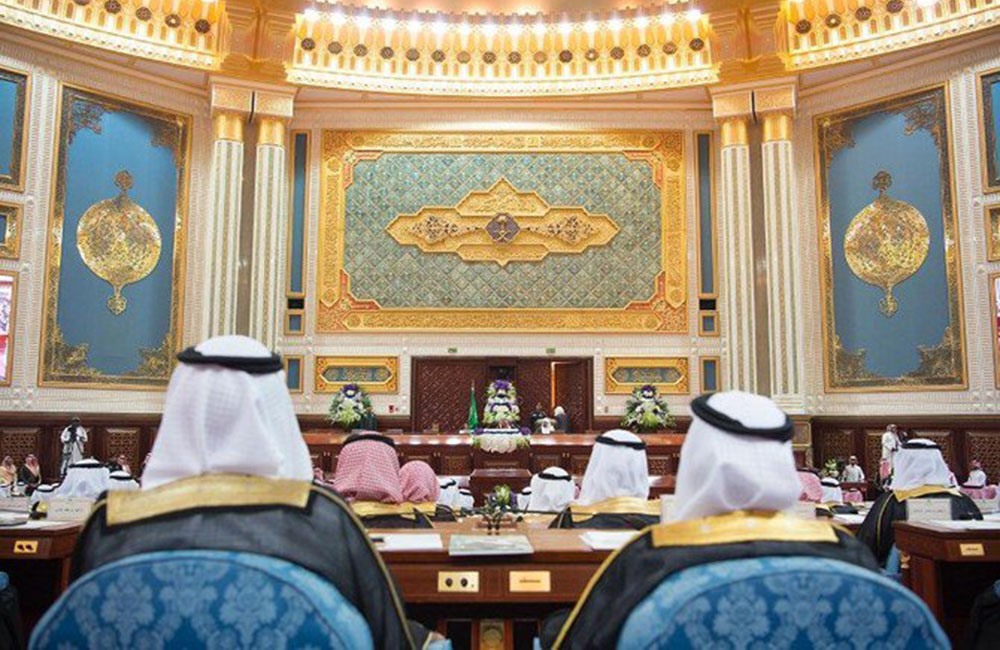
Saudi Arabia’s Shoura Council bans child marriages
Saudi Arabia has banned the marriage of minors following a ruling by the Kingdom’s Shoura Council, according to a statement issued by the council on its website.
The council’s speaker Abdullah Al-Sheikh approved the law that called for banning of marriage of all minors, male or female, at a recent session of the council.
The ruling also received the support of two thirds of the council.
After the decision Shoura Council member Latifa Al-Shaalan Tweeted her approval of the council's decision, calling it “a good step forward that was not easy to reach.”
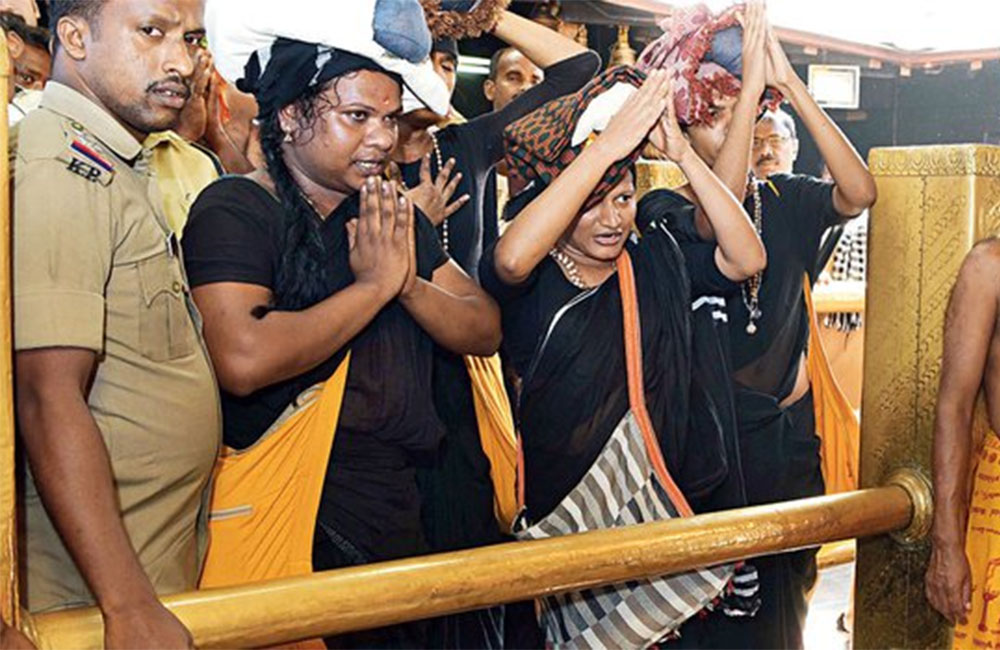
Transgender women allowed to pray at India's Sabarimala temple
Four transgender women have been allowed to pray at an Indian temple at the centre of a bitter row over whether women should be permitted to enter.
Despite a Supreme Court ruling allowing women devotees into the Sabarimala shrine in Kerala state, they have been blocked repeatedly by mobs.
The transgender women, all wearing black sarees, were allowed to enter on Tuesday under police protection.
The temple has historically been closed to women of "menstruating age". The group of transgender women had been blocked from accessing the temple on Sunday by police, citing security concerns.
Before September's Supreme Court ruling, transgender women were allowed to enter the shrine, but since the decision - which sparked violent protests - some police officials had suggested that transgender women should dress as men in order to gain access.
They refused and took their case to a committee set up by the Kerala High Court. The panel agreed that they could pray at the shrine, and temple officials also said they did not object to the transgender women because they do not menstruate.
Source : BBC
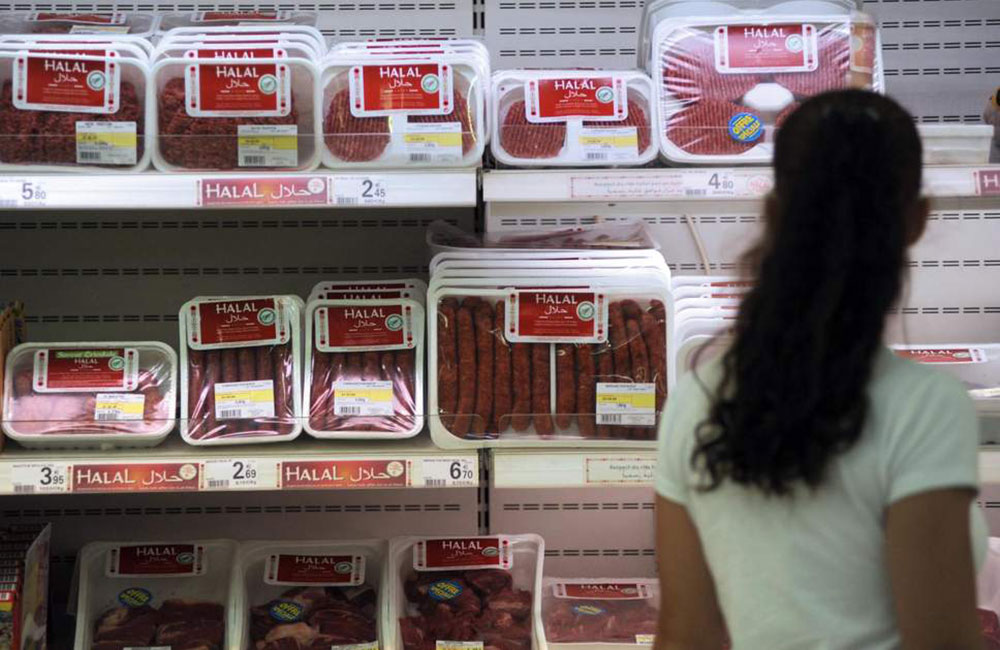
Belgium bans halal and kosher animal slaughter
A ban on kosher and halal slaughter has come into effect in the Flanders region of Belgium unless the animal is stunned before it is killed.
It comes after legislation prohibiting animal slaughter without pre-stunning was passed in the nation's parliament in July 2017.
The northern region of Flanders is the first in Belgium to implement the ban, with the legislation coming into effect on New Year's Day.
Similar restrictions will be in place in the southern Wallonia region from September.
The law was branded the "greatest assault on Jewish religious rights in Belgium since the Nazi occupation" by the European Jewish Congress in May 2017, the Jewish Chronicle reported.
Both the Muslim halal and Jewish kosher rituals require that the animal is butchered by slitting its throat and draining the blood.
Under the new law, animals will have to be stunned electrically before being killed.
Belgium's Muslim and Jewish communities have expressed opposition to the law, with several religious organisations filing lawsuits to stop the new legislation, MailOnline reported.
These include the Belgian Federation of Jewish Organisations, the European Jewish Congress and the World Jewish Congress.
It is hoped the lawsuits might still light the ban later this year.
Countries including Denmark, Switzerland and New Zealand already prohibit unstunned slaughter.
(Evening Standard)
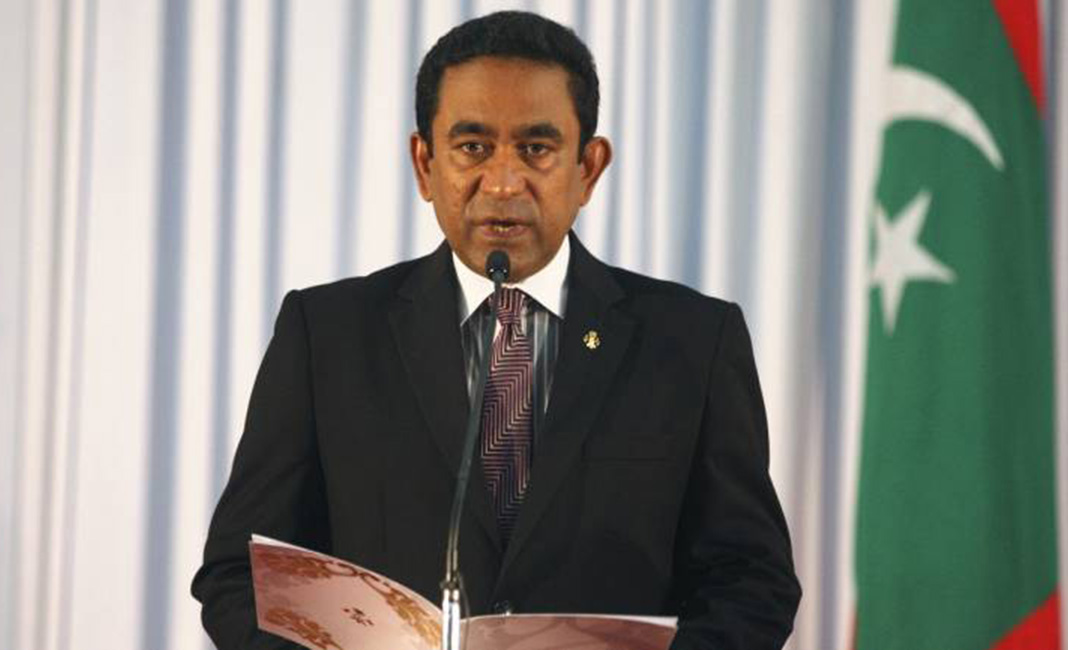
Maldives seize $6.5 million from former president
Former Maldives president Abdulla Yameen is under investigation for corruption, police said Sunday, after a court ordered accounts holding USD 6.5 million to be frozen.
Yameen, who was defeated in a September election, was interviewed by police on the honeymoon islands on Saturday.
He has been dogged by allegations that he received close to USD 1.5 million in illicit payments during his failed bid for re-election in the Indian Ocean archipelago nation.
The country's monetary authority has lodged a police complaint about the alleged donations made into a private account held by Yameen in two suspicious tranches, local media reported.
The former strongman president, who ruled the popular holiday islands with an iron fist, jailing or exiling his opponents, has denied the allegations. Yameen relied heavily on China for political and financial support in the nation of 340,000 Sunni Muslims, troubling neighbouring India.
Beijing has challenged New Delhi for regional influence, including in strategically-located nations like the Maldives, Sri Lanka and Nepal which have traditionally been within India's orbit.
China has loaned billions of dollars to countries around the Indian Ocean and beyond for infrastructure development, stoking fears of a debt trap.
But Yameen's defeat to Ibrahim Mohamed Solih signalled something of a reset, with the new president accusing China of a land grab in the Maldives and turning to India for help.
Solih departed for India on Sunday on his first official visit abroad since assuming office.
He is scheduled to meet Prime Minister Narendra Modi in New Delhi on Monday.
(PTI)
Virus-free. www.avast.com
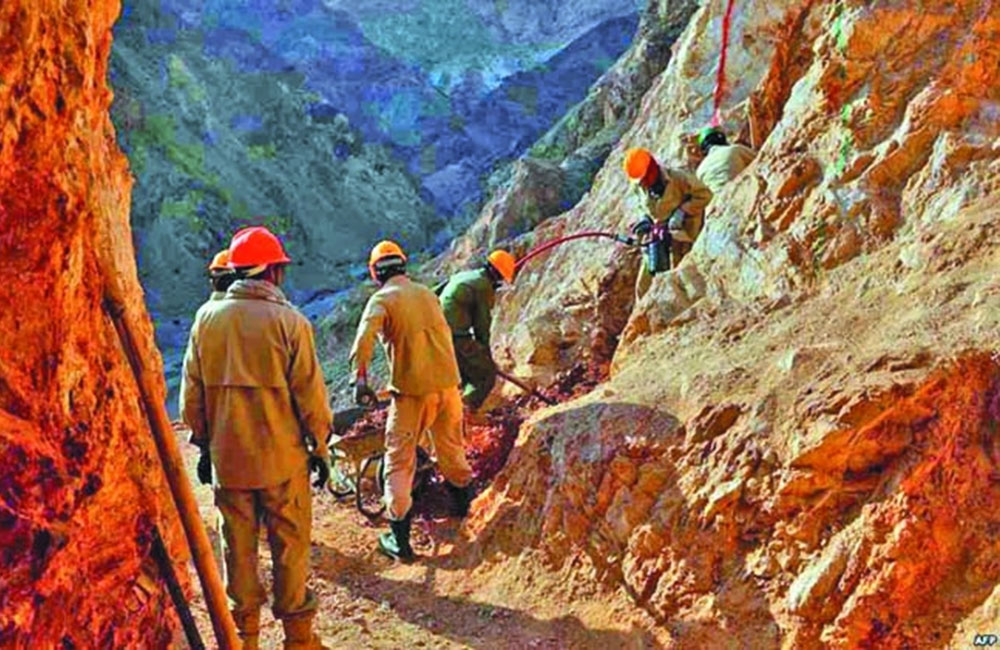
Afghanistan gold mine collapse in Badakhshan kills 30
At least 30 people have been killed in the collapse of a gold mine in north-eastern Afghanistan, officials say.The collapse occurred in the Kohistan district of Badakhshan province.
Villagers had reportedly dug a 60m (220ft) deep but makeshift shaft in a river bed to hunt for gold and were caught in its collapse. Afghanistan has vast resources of minerals but many of the mines are old and poorly maintained, creating severe safety issues.
Villagers were reportedly using an excavator at the site when the mine collapsed. At least seven other people were injured, officials say.
Kohistan district chief Rostam Raghi told the BBC's Afghan service: "Locals rushed to the scene and managed to rescue only 13 workers. Dozens of others, including some children, died."
Nik Mohammad Nazari, spokesman for the provincial governor, told Agence France-Presse: "The villagers have been involved in this business for decades with no government control over them. "We have sent a rescue team to the area, but villagers have already started removing bodies from the site."A spokesman for the National Disaster Management Authority told AFP the families of the dead would receive 50,000 afghanis ($660; £520).
Afghanistan's vast resources remain largely untapped due to the conflict with the Taliban.The conflict has seen the rise in illegal mining both by villagers and Taliban fighters who use it as a key source of revenue. (BBC)
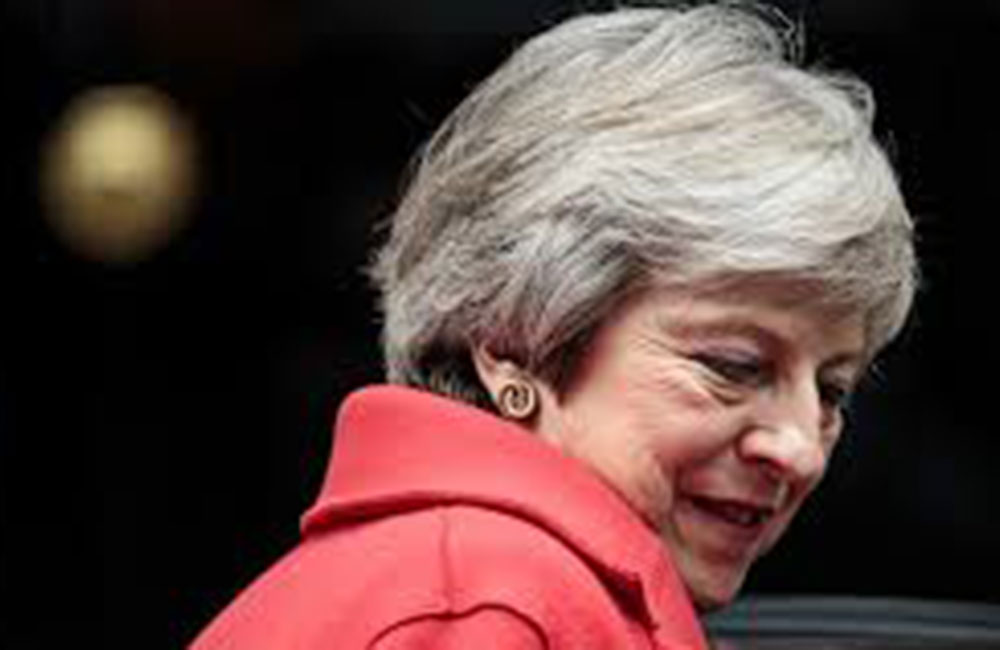
Conservative Party calls for vote of no confidence to oust Prime Minister Theresa May
Lawmakers in Britain’s Conservative Party on Wednesday triggered a “no confidence” vote against Prime Minister Theresa May, threatening her leadership as she struggles to secure a deal for Britain to leave the European Union.
May quickly responded that she would not resign but would defend her vision for Brexit. She warned the rebellious lawmakers that ousting her would not make getting a Brexit deal any easier but instead would bring delay and confusion.
“I will contest that vote with everything I’ve got,” said May, speaking outside her Downing Street offices. “I stand ready to finish the job.”
Removing and replacing the prime minister would take weeks. Changing leaders now, May warned, would “put our country's future at risk and create uncertainty when we can least afford it.”
The vote on the prime minister’s fate will take place Wednesday evening.
If a large number of her fellow Conservatives vote against her, she may be pressed to resign. If half the Conservative Party lawmakers vote against her, May would be removed.
The looming no-confidence vote throws May’s Brexit deal and Britain’s future relationship with Europe into chaos.
The prime minister on Monday announced she was delaying a vote on her deal, after she concluded that the accord faced a humiliating defeat in the House of Commons. May spent Tuesday meeting with Netherlands Prime Minister Mark Rutte, German Chancellor Angela Merkel and the E.U. leaders, trying to secure new concessions that might appease British lawmakers who oppose her Brexit withdrawal agreement.
For the Tories to challenge May, ostensibly their party leader, they need to send at least 48 letters — equaling 15 percent of the 315 Conservative lawmakers — to Sir Graham Brady, the chairman of the 1922 Committee in Parliament.
“The threshold of 15 percent of the parliamentary party seeking a vote of confidence in the leader of the Conservative Party has been exceeded,” Brady said.
Brady told the BBC that he informed the prime minister on Tuesday night that the threshold of 48 letters had been reached. May was “businesslike and keen to proceed as quickly as possible,” he said.
Brady said the no-confidence ballot would take place Wednesday evening between 6 p.m. and 8 p.m. Votes will be counted “immediately afterward and an announcement will be made as soon as possible,” he said.
For May to survive a leadership challenge, she needs a simple majority of Conservative lawmakers — 158 of 315 to support her.
May advised her fellow Tories to look at the calendar. “The new leader wouldn’t have time to renegotiate a withdrawal agreement and get the legislation through Parliament by the 29th of March,” the date when Britain is set to leave the European Union, she said.
A new leader would have to seek delay, May said. “So one of their first acts would have to be extending or rescinding Article 50, delaying or even stopping Brexit when people want us to get on with it,” she said, referring to the provision of the European Union treaty that allows members to withdraw from the bloc.
The leader of Scotland, Nicola Sturgeon, expressed her frustration with the political squabbling. She tweeted: “Today is a stark reminder that the UK is facing chaos and crisis entirely because of a vicious civil war within the Tory party. What a self-centered bunch they are. They all need to go, not just the PM.”
Top Tories in her cabinet quickly announced they would back May. Supporters include Foreign Secretary Jeremy Hunt and Home Secretary Sajid Javid.
Philip Hammond, the chancellor of the exchequer, tweeted: “The Prime Minister has worked hard in the National interest since the day she took office and will have my full support in the vote tonight. Her deal means we leave the EU on time, whilst protecting our jobs and our businesses.”
Tim Bale, a professor of politics at Queen Mary University of London, said that in practice, May would likely need to win by more than a simple majority to stay in power.
If she were to “win by 52-48, for example,” that would “indicate that so many of her MPs didn’t want her,” Bale said. “It would be morally difficult to carry on.”
Bale also said that a new leader may not solve the Conservative Party’s Brexit problems. “Is the problem actually the prime minister? The problem is what it has always been. Any deal that could pass muster with the E.U. won’t pass muster with Tory Euroskeptics.”
There is no shortage of fellow Tories who have suggested they might make fine replacements, if May is removed. Among the possible contenders are former Brexit secretary Dominic Raab and former foreign secretary Boris Johnson. Both men resigned their posts, saying they could not support May’s Brexit deal because it kept Britain too closely aligned with Europe.
“Vassalage,” Johnson called it.
Commentators were quick to draw comparisons to Margaret Thatcher, the original Iron Lady and Britain’s only other female prime minister, who won a vote of confidence on the first ballot, but resigned anyway in 1990. The party’s rules were very different then. Now, a leader cannot be challenged by a rival — a contest is triggered by the 48 letters — and needs to win by only a single vote. If May wins the vote, she cannot be challenged for a year.
If May loses the vote, she could remain as a caretaker prime minister until another leader is found, a process that could take six weeks. If multiple candidates throw their hats in the ring, then Conservative lawmakers vote, with the candidate receiving the fewest votes removed.
In the past, the voting has taken place on Tuesdays and Thursdays. Then, when two candidates are left, a vote is put to the wider grass-roots Conservative Party membership, which is more pro-Brexit than Parliament.
When David Cameron resigned as prime minister the morning after Britain’s 2016 Brexit referendum, he stayed on as caretaker prime minister for three weeks until May replaced him in July 2016. In that leadership context, the field was whittled down from five to two candidates — May and Andrea Leadsom. Leadsom dropped out after she gave an interview suggesting she was the stronger candidate because she had children.
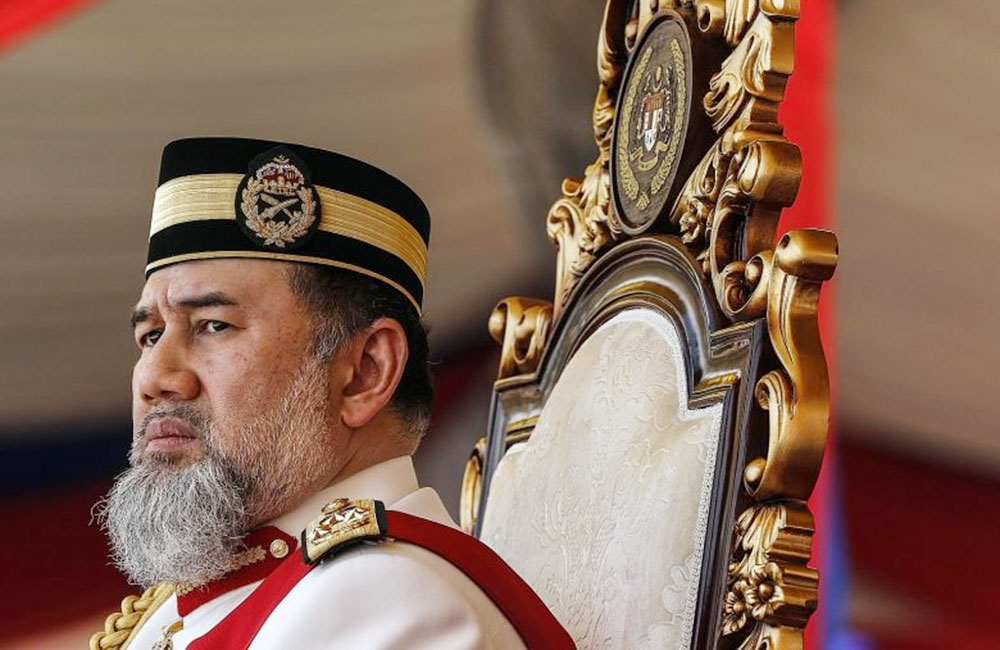
Malaysia king: Sultan Muhammad V abdicates in historic first
Malaysia's king, Sultan Muhammad V, has unexpectedly abdicated in a historic first.No Malaysian monarch has stepped away from the throne since the country gained independence from the UK more than 60 years ago. The National Palace did not give a reason for his resignation but said it would take effect immediately.
It comes amid intense speculation about Muhammad V's private life following reports that he has married a Russian. He went on medical leave in November and, later that month, photographs emerged that appeared to show him marrying a former Miss Moscow in the Russian capital.
Officials have not commented on the rumours or given any further details about his health."His Majesty tells the people of Malaysia to continue to be united to maintain unity, tolerance, and work together," a statement from the palace said.
It added that the king, who took the throne in December 2016, was "ready to return home to the state of Kelantan". He may serve as acting king before a new monarch is selected by the Council of Rulers, the Straits Times reports.
Muhammad V, who was just 47 when he became king, has garnered a reputation for having relatively youthful interests. He is keen on extreme sports like off-road driving, shooting and endurance challenges.
Malaysia is the only country in the world to have a rotational monarchy, in place since the country became independent in 1957. The top job is passed between nine hereditary state rulers, with a rotation happening once every five years. But it is largely ceremonial, with power in the hands of parliament and the prime minister.
Despite this, the role is accorded considerable prestige, particularly among the country's Malay Muslim majority, for whom the king is seen as upholding Malay and Islamic tradition. Criticism deemed to incite contempt of the king can attract a jail term
The current Prime Minister Mahathir Mohamad, who returned to office in a shock election victory last May, had a tense relationship with the Sultans during his previous governments when he attempted to limit their authority, the BBC's Jonathan Head reports.
Last week, he warned that all Malaysians must be bound by the law, whatever their status, our correspondent adds. (BBC)
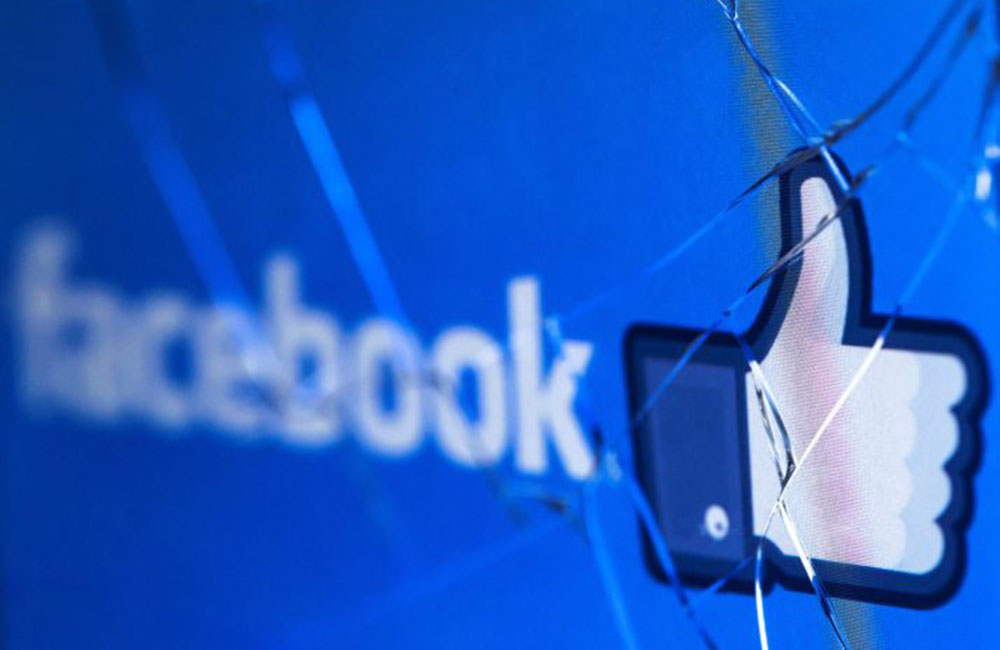
EU to ask Facebook, Twitter, Google for monthly ‘fake news’ reports
The European Commission is planning to ask social media platforms including Facebook, Twitter and Google for monthly reports on Russian disinformation campaigns ahead of the European election next May, two EU officials told POLITICO.
The call to the tech companies is part of an “action plan” on fake news, expected to be presented Wednesday.
Facebook and others will be asked to provide reports from January to May, one official said. The information would be compiled by the European Commission, which is also planning to publish these reports to create awareness among European voters on how foreign actors try to influence their vote.
Wednesday’s action plan would single out Russia as a repeated offender using systematic, large-scale disinformation campaigns.
The tech companies’ reports would include figures on how they label political adverts as well as how many bot accounts and fake accounts they identify and disable.
Companies that have signed up to the EU’s Code of Practice on Disinformation would be asked for monthly reporting. So far, individual companies that have signed up include Google, Facebook, Twitter and Mozilla.
The Commission’s action plan would include a request for more funding for disinformation agencies in Europe, including the EU’s own StratCom unit in the External Action Service, and the creation of a “rapid alert system” to notify national authorities if the country is under a sustained attack of fake news.
(Politico)
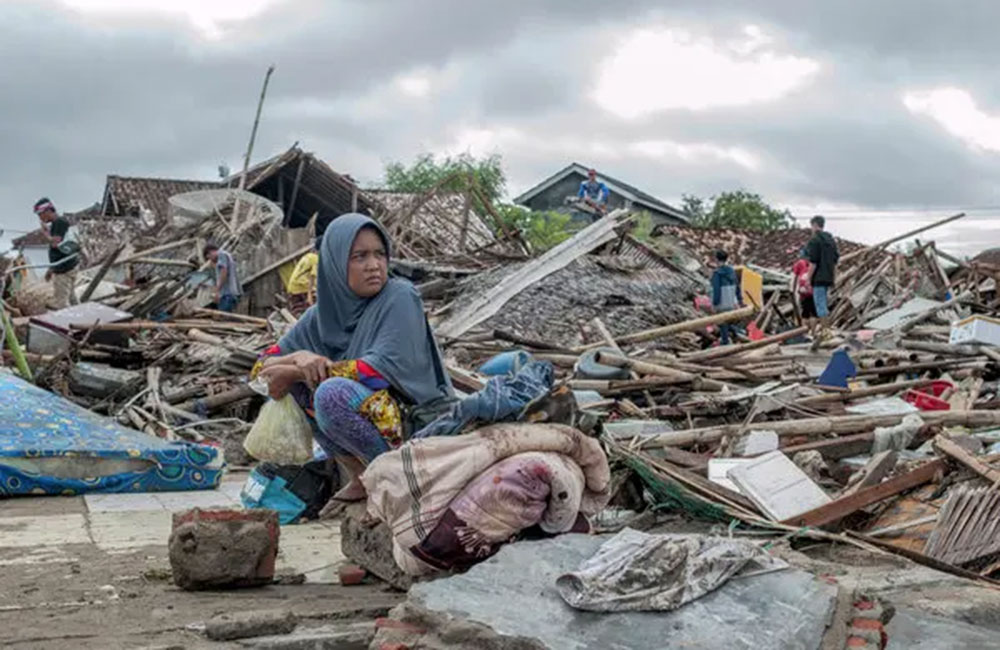
Indonesia tsunami: Death toll from Anak Krakatau volcano rises
The death toll following the tsunami caused by the Anak Krakatau volcano in Indonesia has risen to at least 429, the disaster mitigation agency says.
On Saturday giant waves crashed into coastal towns on the islands of Sumatra and Java. It is thought that volcanic activity set off undersea landslides which in turn generated the killer waves.
About 150 people are still missing, while more than 16,000 have been displaced, the agency says. Coastal residents near the volcano have been warned to keep away from beaches amid fears it could trigger a new tsunami. Anak Krakatau erupted again on Sunday, spewing ash and smoke.
Video shot from a charter plane captured the magnitude of the volcanic event in the Sunda Strait, between Sumatra and Java. Rescue efforts are being hampered by blocked roads but heavy lifting equipment is being transported to badly hit areas to help search for victims.
Source : BBC
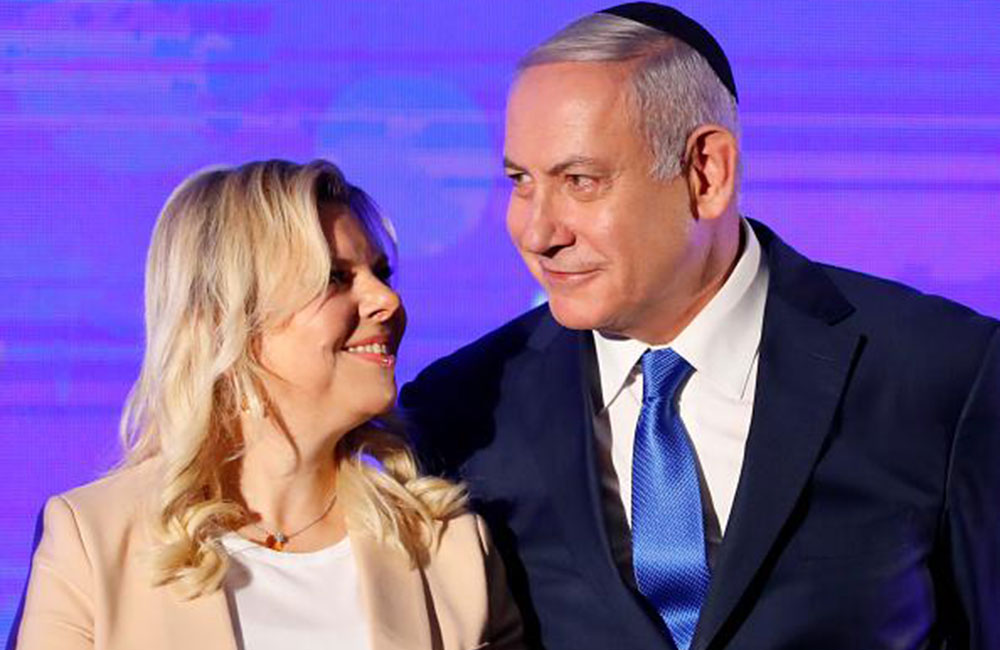
Israeli police recommend indicting Prime Minister Benjamin Netanyahu
Israeli police are recommending Prime Minister Benjamin Netanyahu be indicted in a corruption case involving Israel's telecom giant.
Police said on Sunday that they have established an evidentiary foundation to charge Netanyahu and his wife Sara with accepting bribes, fraud and breach of trust.
The case revolves around suspicions that confidants of Netanyahu promoted regulations worth hundreds of millions of dollars to the Bezeq telecom company in exchange for positive coverage of the prime minister on Bezeq's news website, Walla.
Police have already recommended indicting Netanyahu on corruption charges in two other cases, one involving accepting gifts from billionaire friends, and the second over trading positive media coverage for advantageous legislation for a newspaper.
The prime minister has denied any wrongdoing, dismissing the accusations as a witch hunt orchestrated by the media.
Page 15 of 41
